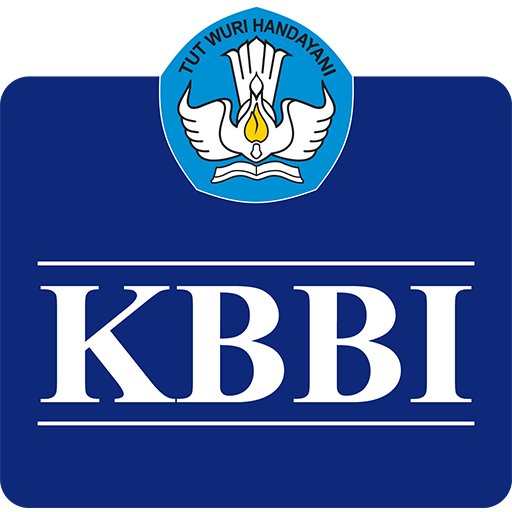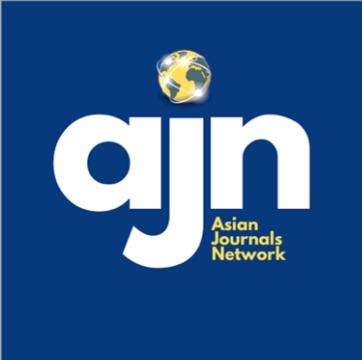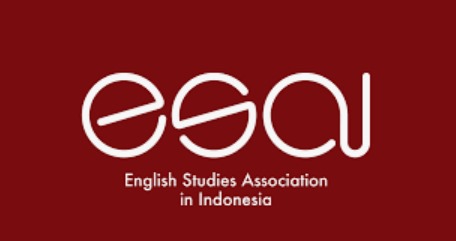PEMBELAJARAN BAHASA SEBAGAI UPAYA PEMBENTUKAN KARAKTER BERBAHASA SANTUN MAHASISWA
DOI:
https://doi.org/10.33541/dia.v12i1.7055Keywords:
Kesantunan berbahasa, pragmatik, sikap mahasiswa, Pola KomunikasiAbstract
Fenomena meningkatnya penggunaan gaya berbahasa tidak santun di kalangan mahasiswa cenderung menimbulkan kemerosotan nilai-nilai karakter dan buruknya interaksi mahasiswa di lingkungan akademik. Penelitian ini bertujuan untuk mengidentifikasi faktor-faktor yang memicu kecenderungan penggunaan gaya berbahasa tidak santun, menganalisis dampak buruk terhadap karakter mahasiswa dan merumuskan strategi pembentukan karakter melalui pembelajaran bahasa. Menggunakan metode studi pustaka dengan pendekatan kualitatif deskriptif, penelitian ini mengkaji berbagai literatur yang membahas teori kesantunan, perilaku linguistik mahasiswa, dan pendidikan karakter dalam konteks pendidikan tinggi. Hasil kajian menunjukkan bahwa penggunaan gaya berbahasa seperti "anjir", "bullshit", "elu-gue", dan bentuk-bentuk ekspresi slang lainnya dipengaruhi oleh pengaruh budaya populer, media digital, serta kurangnya pembelajaran eksplisit tentang etika berbahasa. Ketidaksantunan dalam komunikasi terbukti melemahkan nilai-nilai moral seperti empati dan rasa hormat, serta menciptakan ketimpangan sosial di lingkungan kampus. Untuk mengatasi hal tersebut, artikel ini mengusulkan strategi pembentukan karakter melalui kesadaran linguistik yang terintegrasi dalam kurikulum pendidikan tinggi, termasuk pelatihan komunikasi berbasis konteks, integrasi nilai dalam literasi digital, dan pembelajaran teori kesantunan. Penelitian ini menawarkan kontribusi konseptual dengan mengintegrasikan pembelajaran bahasa dan karakter sebagai upaya transformatif dalam membentuk etika komunikasi mahasiswa di era modern.
References
Astartia, D. D., & Widianti, S. (2022, December). The Positive Politeness Strategy on Ordering and Requesting Speech Acts in Japanese Companies. In Sixth International Conference on Language, Literature, Culture, and Education (ICOLLITE 2022) (pp. 150-155). Atlantis Press.
Astartia, D. D., & Widianti, S. (2022, December). The Positive Politeness Strategy on Ordering and Requesting Speech Acts in Japanese Companies. In Sixth International Conference on Language, Literature, Culture, and Education (ICOLLITE 2022) (pp. 150-155). Atlantis Press.
Chen, M. (2023, March). Strategies for Coping with the Challenges Under the Background of Content-Based Instruction Across the Critical Thinking and Motivational Challenges. In 2nd International Conference on Education, Language and Art (ICELA 2022) (pp. 270-276). Atlantis Press.
Chen, Q. (2022, December). A pragmatic study of online offence in discussion board. In 3rd International Conference on Language, Communication and Culture Studies (ICLCCS 2022) (pp. 50-62). Atlantis Press.
Fauzi, A., & Atok, R. (2017). Penguatan karakter rasa ingin tahu dan peduli sosial melalui discovery learning. Jurnal Teori Dan Praksis Pembelajaran IPS, 2(2), 83-93.
Gitu, S., Basweti, N., & Atoh, F. (2025). Understanding Impolite Utterances on Facebook in Kenya: A Cyberpragmatic Approach. Afrika Tanulmányok/Hungarian Journal of African Studies, 19(1), 23-41.
Groshek, J., & Cutino, C. (2016, July). Meaner on mobile: Incivility and impoliteness in communicating online. In Proceedings of the 7th 2016 International conference on social media & society (pp. 1-7).
Hipkiss, A. M. (2018). A classroom is a classroom is a classroom? A study of the affordance of classroom design for classroom interaction.
Intiana, S. R. H., Prihartini, A. A., Handayani, F., Mar'i, M. I., & Faridi, K. (2023). Independent curriculum and the Indonesian language education throughout the era of society 5.0: A literature review. Al-Ishlah: Jurnal Pendidikan, 15(1), 911-921.
Istighfarna, H. A., Setiawan, S., & Maru, M. G. (2023, March). Cause-Effect Relation in Language Use Among English Department Students Towards Their Lecturers on WhatsApp Chat. In International Joint Conference on Arts and Humanities 2022 (IJCAH 2022) (pp. 2030-2039). Atlantis Press.
Istighfarna, H. A., Setiawan, S., & Maru, M. G. (2023, March). Cause-Effect Relation in Language Use Among English Department Students Towards Their Lecturers on WhatsApp Chat. In International Joint Conference on Arts and Humanities 2022 (IJCAH 2022) (pp. 2030-2039). Atlantis Press.
Kirsch, C., & Seele, C. (2022). Early language education in Luxembourg. In Handbook of Early Language Education (pp. 789-812). Cham: Springer International Publishing.
Kleinheksel, A. J., Rockich-Winston, N., Tawfik, H., & Wyatt, T. R. (2020). Demystifying content analysis. American journal of pharmaceutical education, 84(1), 7113.
Kurniawan, R., Kurniawan, A. W., & Anggraini, S. N. (2022, December). Analysis of Students’ Attitudes in Physical Education Learning Class. In International Conference on Sports Science and Health (ICSSH 2022) (pp. 340-350). Atlantis Press.
Lestari, W. D., Sulistyono, Y., Nasucha, Y., & Sabardila, A. (2023, August). Language Politeness and Character Educational Values on the Literacy Module Text for Elementary School Students as a Part of AKSI Application Issued by the Ministry of Education and Culture. In International Conference on Learning and Advanced Education (ICOLAE 2022) (pp. 2428-2450). Atlantis Press.
Lestari, W. D., Sulistyono, Y., Nasucha, Y., & Sabardila, A. (2023, August). Language Politeness and Character Educational Values on the Literacy Module Text for Elementary School Students as a Part of AKSI Application Issued by the Ministry of Education and Culture. In International Conference on Learning and Advanced Education (ICOLAE 2022) (pp. 2428-2450). Atlantis Press.
Lolang, E., Rais, R., Oualeng, A., & Prayitno, M. A. (2023). Analysis of educational messages in The Lion King movie: Perspectives on character education and environmental conservation. COMPETITIVE: Journal of Education, 2(2), 122-130.
Moore, P. C., & Saçak, B. (2023). Character-infused virtue ethics and implications for the design of character development training. In Toward Inclusive Learning Design: Social Justice, Equity, and Community (pp. 15-29). Cham: Springer Nature Switzerland.
Mustadi, A., & Amelia, R. (2023, January). Children’s Politeness in Digital Era. In Unima International Conference on Social Sciences and Humanities (UNICSSH 2022) (pp. 115-123). Atlantis Press.
Nasution, S. R. J. (2022). Analisis Nilai-Nilai Pendidikan Karakter-Pada Film Animasi Riko The Series Seaseon 2 Epidsode 8-12. COLLASE (Creative of Learning Students Elementary Education), 5(6), 1097-1104.
Nurfatimah, S. A., Hasna, S., & Rostika, D. (2022). Membangun kualitas pendidikan di Indonesia dalam mewujudkan program Sustainable Development Goals (SDGs). Jurnal Basicedu, 6(4), 6145-6154.
Nurhalimah, T. W., Assidik, G. K., Prabawa, A. H., & Santoso, J. (2023, August). Critical Discourse Analysis: The Use of Language in Sukoharjo’s Second-Hand Buying and Selling Group on Facebook Social Media and Its Relationship to the Learning of Negotiation Texts. In International Conference on Learning and Advanced Education (ICOLAE 2022) (pp. 2262-2284). Atlantis Press.
Nuryadin, R., Irfan, N., & Layinah, L. (2024). Systematic Literature Review: Strategi Pembelajaran Bahasa Arab Ilmu Sharaf Berdasarkan Teori Pembelajaran Terpadu. Jurnal Pendidikan dan Pembelajaran Indonesia (JPPI), 4(4), 1371-1385.
Pambudi, R., Assidik, G. K., Wahyudi, A. B., & Prabowo, A. H. (2023, August). Speech Politeness Strategies Toward Citayem Fashion Week Phenomena on Twitter and Instagram and its Relevance as Indonesian Language Teaching Materials. In International Conference on Learning and Advanced Education (ICOLAE 2022) (pp. 1825-1840). Atlantis Press.
Pasana, C. J. R., Lemana II, H. E., & Mamonong, V. H. (2023). Netizens at Odds with the Education Department: Analysis of Impoliteness Strategies on an Online Platform. Community and Social Development Journal, 24(3), 31-46.
Pramesti, A. A., Sitompul, R. P., & Sopiya, N. (2022). Systematic Literature Review: Pemanfaatan Virtual Reality (Vr) Sebagai Alternatif Media Pembelajaran. Jurnal Pendidikan Teknologi dan Kejuruan, 19(2), 105-117.
Razaq, H. R., Atta, A., & Aslam, S. (2023). Unveiling Impoliteness Strategies in Political Discourse: A Case Study of Online Press Conferences and Media Platforms during the Political Crisis in Pakistan. Pakistan Languages and Humanities Review, 7(4), 340-350.
Reger, R. K., & Kincaid, P. A. (2021). Content and text analysis methods for organizational research. In Oxford Research Encyclopedia of Business and Management.
Riyanto, S., & Mukarromah, N. (2022, December). Communication Patterns of Wayang Yudhistira Figure to the Principles of Language Politeness. In 7th International Conference on Social and Political Sciences (ICoSaPS 2022) (pp. 311-316). Atlantis Press.
Riyanto, S., & Mukarromah, N. (2022, December). Communication Patterns of Wayang Yudhistira Figure to the Principles of Language Politeness. In 7th International Conference on Social and Political Sciences (ICoSaPS 2022) (pp. 311-316). Atlantis Press.
Rospia, E. D., & Ratnaningsih, S. (2020). Woman's Experience in Continuing Midwifery Care: Systematic Literature Review. Jurnal Kebidanan Midwiferia, 6(2), 50-58.
Saif, H., Ortega, F. J., Fernández, M., & Cantador, I. (2016). Sentiment analysis in social streams. Emotions and Personality in Personalized Services: Models, Evaluation and Applications, 119-140.
Saifullah, A. R. (2020, March). (Im) Politeness and (In) Civility in Social Media: The Case of Pronouns and Propositions in Twitter Comments. In 4th International Conference on Arts Language and Culture (ICALC 2019) (pp. 396-407). Atlantis Press.
Salazar-Campillo, P. (2022). Address Forms and Politeness Markers in Spanish Students' Emails to Faculty. RaeL: Revista Electronica de Linguistica Aplicada, 21(1).
Upadhyay, S. R. (2010). Identity and impoliteness in computer-mediated reader responses.
Valūnaitė-Oleškevičienė, G., Mockienė, L., & Mažeikienė, V. (2020, December). Technology-Supported Collaborative Learning in Language Teaching. In International Conference on Technology and Innovation in Learning, Teaching and Education (pp. 389-397). Cham: Springer International Publishing.
Valūnaitė-Oleškevičienė, G., Mockienė, L., & Mažeikienė, V. (2020, December). Technology-Supported Collaborative Learning in Language Teaching. In International Conference on Technology and Innovation in Learning, Teaching and Education (pp. 389-397). Cham: Springer International Publishing.
Wang, N., & Johnson, W. L. (2008). The Politeness Effect in an intelligent foreign language tutoring system. In Intelligent Tutoring Systems: 9th International Conference, ITS 2008, Montreal, Canada, June 23-27, 2008 Proceedings 9 (pp. 270-280). Springer Berlin Heidelberg.
Wardani, D. S., & Rahmawati, F. P. (2023, August). Implementation of Three Language Literacy by Literacy Ambassadors in Elementary Schools. In International Conference on Learning and Advanced Education (ICOLAE 2022) (pp. 592-604). Atlantis Press.
Wijaya, R. G., Rizkyanto, W., Gani, I., & Iswanto, A. (2023, December). Analysis of The Impact of Synchronous Physical Education Online Learning on The Character, Psychology, And Physiology of High School Students in Yogyakarta. In Proceedings of the 6th Yogyakarta International Seminar on Health, Physical Education, and Sports Science (YISHPESS 2023) (Vol. 73, p. 37). Springer Nature.
Wijaya, R. G., Rizkyanto, W., Gani, I., & Iswanto, A. (2023, December). Analysis of The Impact of Synchronous Physical Education Online Learning on The Character, Psychology, And Physiology of High School Students in Yogyakarta. In Proceedings of the 6th Yogyakarta International Seminar on Health, Physical Education, and Sports Science (YISHPESS 2023) (Vol. 73, p. 37). Springer Nature.
You, X., Li, Y., Ma, X., & Liu, X. (2023, October). A Research of the Role of Emotional Interaction in College English Classroom Presentations. In Proceedings of the 2023 2nd International Conference on Sport Science, Education and Social Development (SSESD 2023) (Vol. 781, p. 290). Springer Nature.
Zhou, M., Pan, W., & Zhangb, Z. (2023, October). Check for updates A Model for Analyzing the Behavior of Classroom Teacher-Student Interaction Based on Deep Learning. In Proceedings of the 2023 3rd International Conference on Education, Information Management and Service Science (EIMSS 2023) (Vol. 16, p. 240). Springer Nature.













.jpg)





